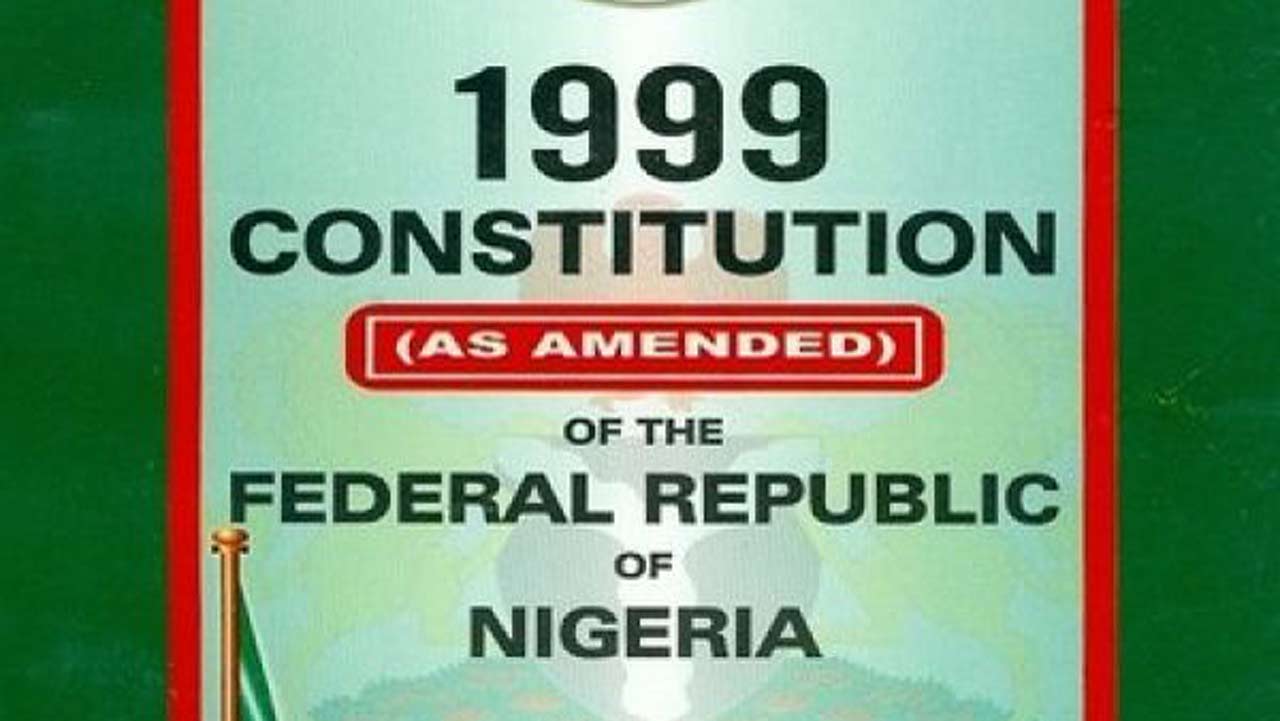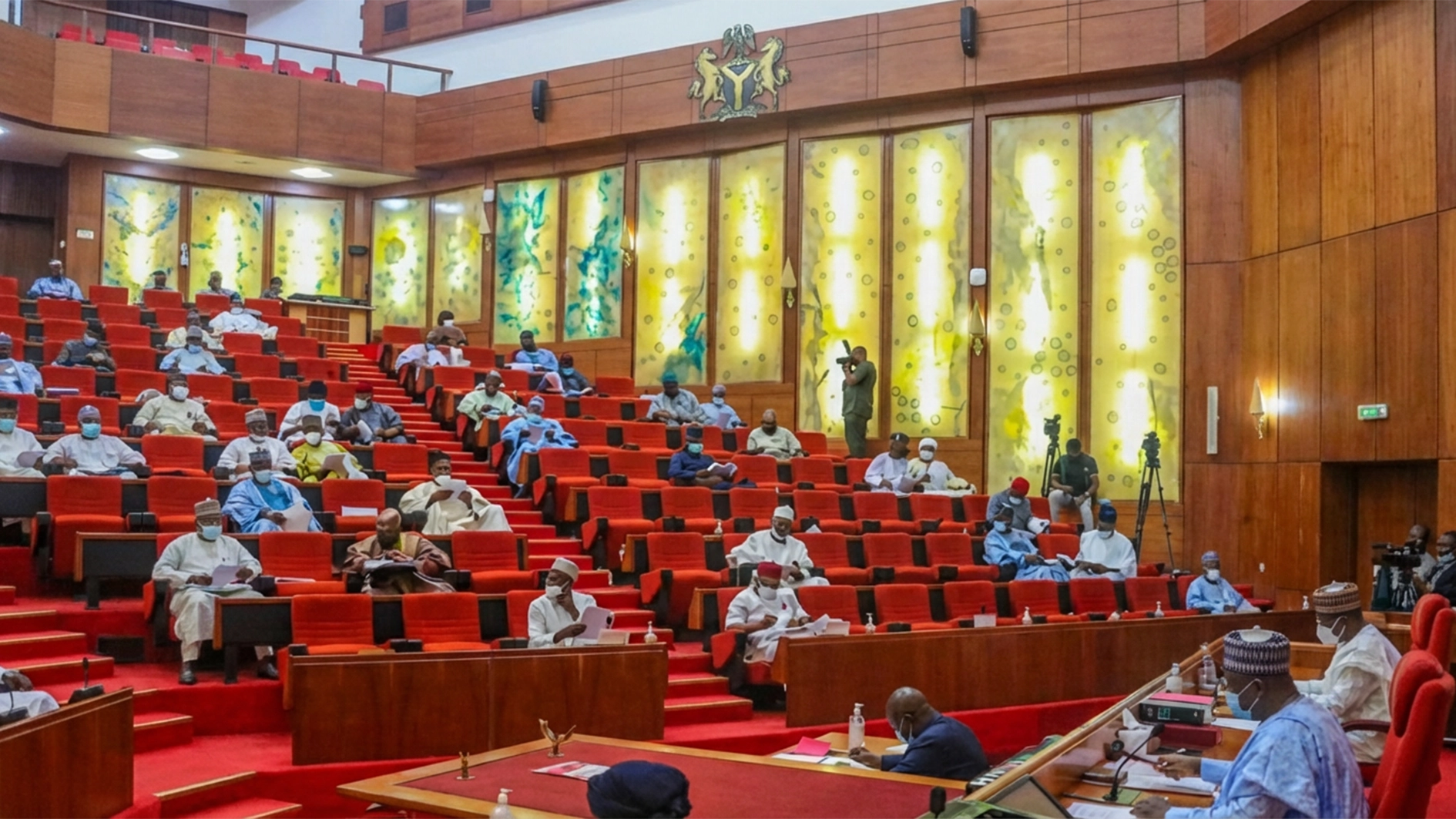
With the world on the brink of a global depression and the Nigerian economy in more of a perilous state than ever before, it is time for the people of this country to chart a new way forward and assess the social, political and economic consequences of this impending economic fallout. It is also high time that the people of this country take control of their own destiny, and use the power of democracy to resolve the many pressing problems that afflict their daily lives.
The usurpation or denial of people’s rights in Nigeria has gone on for far too long. The 1960 Independence Constitution was a product of the departing colonial authorities; the 1963 Republican Constitution was decided upon entirely, by the Prime Minister and Regional Premiers of the day, who merely amended the 1960 Constitution to make it conform with Republican status. The 1966 Coup usurped democracy by replacing it with military rule while the 1979 Constitution was a missed opportunity for the people to adopt a Constitution for themselves, when the Obasanjo- led military administration- amended several aspects of the elected Constituent Assembly’s deliberations. As for the present 1999 Constitution, it came into existence as a result of a decree enacted by the General Abdul Salam Abubakar- led military administration-. We also had an unelected National Conference in 2014, but the deliberations and conclusions of that conference have since been archived and left to gather dust.
The challenge for us today is simply in rewriting our Constitution or restructuring our polity whilst having an existing Constitution. When you have an existing Constitution and a system of governance in place it would be unconstitutional for anyone to attempt to usurp the Constitution without first receiving a clear mandate from the people, the source and donor of all political power. If the government and its organs are created by the 1999 Constitution (as amended), then it is logical that they can only be in possession of the power that is granted to them by the instrument from which their existence is derived. There is no direct provision for a Referendum in our Constitution, but it is more than implied. We may criticise the 1999 Constitution (as amended) for being imperfect, but there are several aspects to it that have not been fully explored or understood. What then is the legal framework that exists within the 1999 Constitution (as amended) that can provide ample basis for a future Referendum that may ultimately lead to a new and radically changed Constitution?
Chapter 11 of the 1999 Constitution (as amended), which contains the provisions on Fundamental Objectives and Directives of State Policy provides some useful answers.
Section 13 of the 1999 Constitution (as amended) states:
13. It shall be duty and responsibility of all organs of government, and of all authorities and persons, exercising legislative, executive or judicial powers, to conform to, observe and apply the provisions of this Chapter of this Constitution.
Furthermore Section 14 provides:
14. – (1) The Federal Republic of Nigeria shall be a State based on the principles of democracy and social justice.
(2) It is hereby, accordingly, declared that-
(a) sovereignty belongs to the people of Nigeria from whom government through this Constitution derives all its power and authority.
Now, if the Constitution states that sovereignty belongs to the people, it stands to reason that the power can be given back to them whenever they ask or require it. The Conundrum however, is that no one seems to know how to go about doing so. A clue can be found in the second schedule of the Constitution which outlines the various items on the exclusive legislative list.
Item 60 provides as follows:
60. The establishment and regulation of authorities for the Federation or any part thereof-
(a) to promote and enforce the observance of the Fundamental Objectives and Directive Principles contained in this Constitution.
The combined effect of Sections 13 and 14 of the 1999 Constitution (as amended), as well as item 60 on the exclusive legislative list under Schedule 2 of the 1999 Constitution (as amended), is that both the executive and legislative arms of government are empowered to establish a National Referendum Commission if deemed necessary for the people of the Federal Republic of Nigeria. I would even further state that they are not only empowered to do so, but tasked with the duty and responsibility to do so as outlined under Section 13 of the 1999 Constitution (as amended) with regard to the Fundamental Objectives and Directive Principles of State Policy.
Item 67 on the exclusive legislative list also provides that laws can also be made with regard to any other matter with respect to which the National Assembly has power to make laws in accordance with the provisions of this Constitution. Item 68 also states that the National Assembly can also make laws with regard to any matter incidental or supplementary to any matter mentioned elsewhere in the exclusive legislative list. This means that the National Assembly has been granted more than enough powers to sponsor a bill for the establishment of a National Referendum Commission, which could be the precursor to a Referendum leading ultimately to a restructured Federation or a radical new Constitution.
The Constitution of Romania contains references to the concept of a Referendum in Article 2 (1) as follows:
“National Sovereignty belongs to the Romanian people who shall exercise it through their representative bodies, established as a result of free periodic and fair elections, as well as by means of a Referendum.”
Similarly, the 1999 Constitution (as amended) states that sovereignty belongs to the people. The Romanian Constitution is rather a shorter document than ours and it directly specifies how Elections and Referendums should be exercised. The 1999 Constitution (as amended) is slightly different in that there are no direct provisions with regard to Elections and implied provisions in the enforcement of the Fundamental Objectives and Directives of State Policy, in terms of how a Referendum could be indirectly brought about. Significantly creating a National Referendum Commission does not by any means dispense with the role of the National Assembly who, depending on the regulatory framework ascribed to the National Referendum Commission, will still have to sanction and approve a National Referendum.
What the establishment of a National Referendum Commission will do, is decentralise power from the National Assembly and ensure that the people of the Federal Republic of Nigeria are allowed to exercise their power of sovereignty and use it to take control of their destinies and resolve the many pressing problems affecting their lives. Without the establishment of a National Referendum Commission, the public is completely excluded from the possibility of asking for a Referendum, which cannot be right, as it is against the purpose and spirit of the 1999 Constitution (as amended). Therefore, the purpose of a National Referendum Commission would be to reassert the suppressed rights of the people of this country, which have been trampled upon for decades due to our inability to interpret the Constitution correctly.
The Proposed National Referendum Commission should be set up to be an independent statutory authority. Further details on the structure of the Commission, its powers, guidelines for constituting a Referendum, procedures and voting eligibility should also ideally be embodied in an enabling act.
Conclusion
The most pernicious of practices are those that continue to afflict us out of indifference. In calling for a National Referendum Commission, a trite little point about the corrupting influences brought about by the over centralisation of power in a few hands is being made. In much the same vein, a more interesting point about the ambivalent nature of freedom is also being made in the sense that, when power is given back to the ordinary man in the strict sense of the word, it means that as a people we are free to do or request what those in the corridors of power might not necessarily approve or do what the average politician or you/I might think is beyond their understanding. For far too long, we have tolerated a system that is designed to allow perceived leaders of thought to make fundamental decisions for us. That is simply unfair to the many generations of unborn Nigerians. We need to build a country that works for everyone. Leaders, however wise cannot change Nigeria unless we, the people, bring ourselves to the realisation that we alone have the capacity to shape our own destinies, and until we do so nothing can really be achieved.
At present, our system of government appears to be unsustainable. At the Federal level we have the Presidency, along with the Senate and the House of Representatives. This is replicated across the 36 states of the Federation in addition to the Federal Capital Territory of Abuja. We also have a judicial system with Federal and State Courts across the length and breadth of the Federation, a Civil Service at Federal and State levels and a plethora of Local Governments everywhere. In all honesty, how can we continue to fund a recurrent expenditure this high? Our debt profile is reported to be approximately $27 billion and is rising. The price of oil does not seem to be getting to the level capable of easing us out of this issue. The truth simply is that the future is looking rather bleak.
The people need to be asked whether they want to continue with the present structure of government. They need to be asked whether they want to fundamentally reshape political structure and as a consequence our Constitution. A National Referendum is an important plank in achieving the above objectives, but at the moment that plank is weak, if not actually missing.
A National Referendum Commission will be an important first step in addressing that imbalance.
Stephen Kola-Balogun, a legal practitioner, wrote from Lagos.






